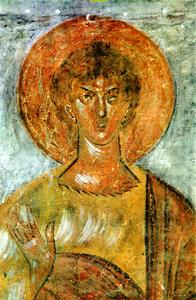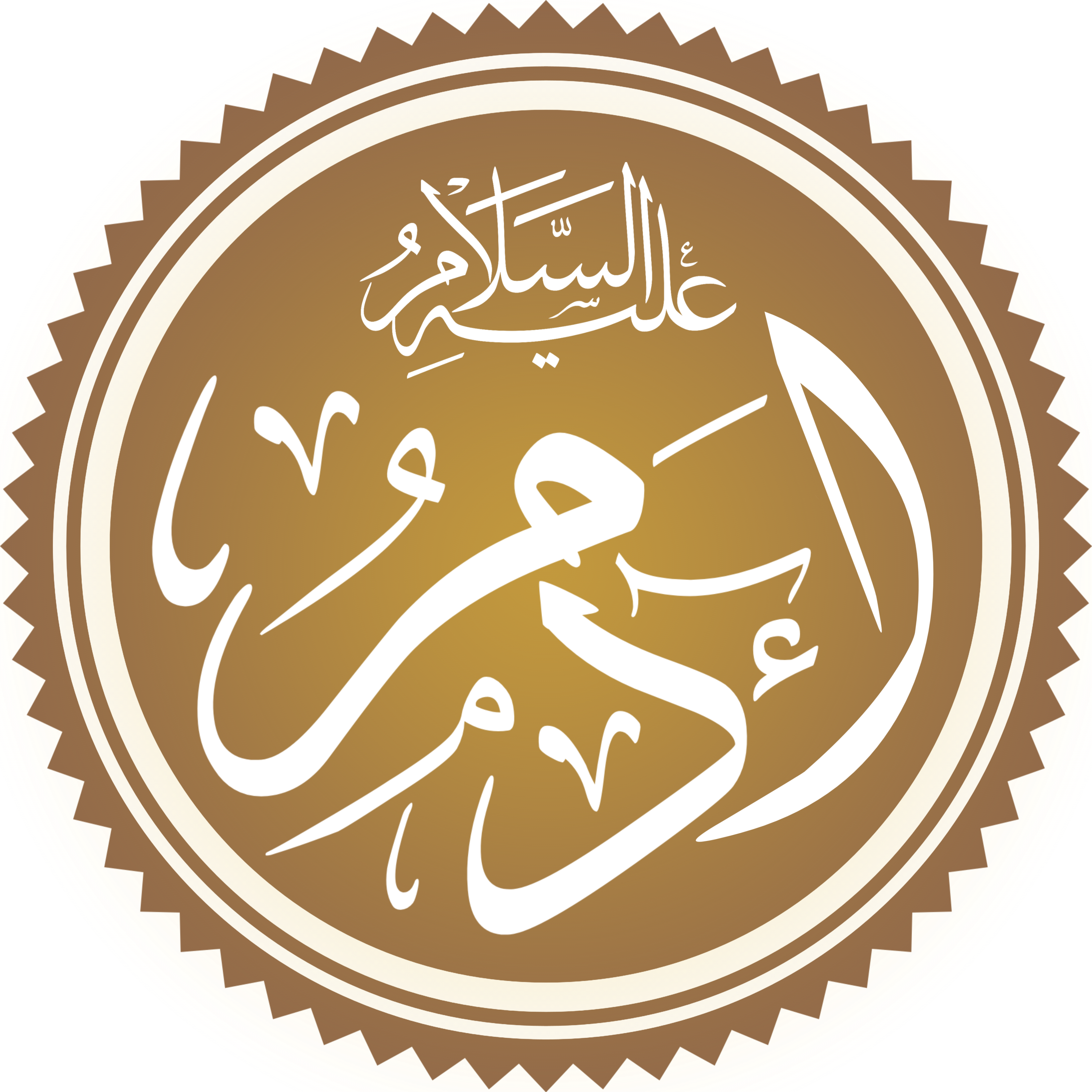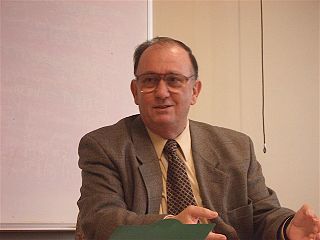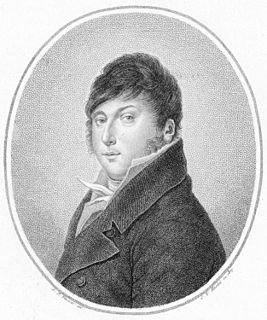
Abel is a Biblical figure in the Book of Genesis within Abrahamic religions. He was the younger brother of Cain, and the younger son of Adam and Eve, the first couple in Biblical history. He was a shepherd who offered his firstborn flock up to God as an offering. God accepted his offering but not his brother's. Cain then killed Abel out of jealousy.

Seth, in Judaism, Christianity, Mandaeism, Sethianism, and Islam, was the third son of Adam and Eve and brother of Cain and Abel, their only other child mentioned by name in the Hebrew Bible. According to Genesis 4:25, Seth was born after Abel's murder by Cain, and Eve believed that God had appointed him as a replacement for Abel.

Cain is a Biblical figure in the Book of Genesis within Abrahamic religions. He is the elder brother of Abel, and the firstborn son of Adam and Eve, the first couple within the Bible. He was a farmer who gave an offering of his crops to God. However, God was not pleased and favored Abel's offering over Cain's. Out of jealousy, Cain killed his brother, for which he was punished by God with the curse and mark of Cain. He had several children, starting with Enoch and including Lamech.

In the biblical Book of Genesis, Cain and Abel are the first two sons of Adam and Eve. Cain, the firstborn, was a farmer, and his brother Abel was a shepherd. The brothers made sacrifices to God, but God favored Abel's sacrifice instead of Cain's. Cain then murdered Abel out of jealousy, whereupon God punished Cain by condemning him to a life of wandering. Cain then dwelt in the land of Nod, where he built a city and fathered the line of descendants beginning with Enoch.

Cain and Abel are a pair of fictional characters in the DC Comics universe based on the biblical Cain and Abel. They are key figures in DC's "Mystery" line of the late 1960s and 1970s, which became the mature-readers imprint, Vertigo, in 1993.

Davy Jones' Locker is a metaphor for the bottom of the sea: the state of death among drowned sailors and shipwrecks. It is used as a euphemism for drowning or shipwrecks in which the sailors' and ships' remains are consigned to the depths of the ocean.
The Conflict of Adam and Eve with Satan is a 6th-century Christian extracanonical work found in Ge'ez, translated from an Arabic original.
The Life of Adam and Eve, also known, in its Greek version, as the Apocalypse of Moses, is a Jewish apocryphal group of writings. It recounts the lives of Adam and Eve from after their expulsion from the Garden of Eden to their deaths. It provides more detail about the Fall of Man, including Eve's version of the story. Satan explains that he rebelled when God commanded him to bow down to Adam. After Adam dies, he and all his descendants are promised a resurrection.

The genealogies of Genesis provide the framework around which the Book of Genesis is structured. Beginning with Adam, genealogical material in Genesis 4, 5, 10, 11, 22, 25, 29-30, 35-36, and 46 moves the narrative forward from the creation to the beginnings of the Israelites' existence as a people.

Eve is a figure in the Book of Genesis in the Hebrew Bible. According to the origin story of the Abrahamic religions, she was the first woman, yet some debate within Judaism has also given that position to Lilith. Eve is known also as Adam's wife.

Adam is believed to have been the first human being on Earth and the first prophet of Islam. Adam's role as the father of the human race is looked upon by Muslims with reverence. Muslims also refer to his wife, Hawa, as the "mother of mankind". Muslims see Adam as the first Muslim, as the Quran states that all the Prophets preached the same faith of Islam.

Adam and Eve according to the creation myth of the Abrahamic religions, were the first man and woman. They are central to the belief that humanity is in essence a single family, with everyone descended from a single pair of original ancestors. They also provide the basis for the doctrines of the fall of man and original sin that are important beliefs in Christianity, although not held in Judaism or Islam.

The Quran, the central religious text of Islam, contains references to more than fifty people and events also found in the Bible. While the stories told in each book are generally comparable, there are also some notable differences. Knowing that versions written in the Hebrew Bible and the Christian New Testament predate the Qur'ān's versions, Christians reason the Qurān's versions as being derived directly or indirectly from the earlier materials. Muslims understand the Qur'ān's versions to be knowledge from an omnipotent God. As such, Muslims generally believe that the earlier versions are distorted through flawed processes of transmission and interpretation over time, and consider the Qur'ān's version to be more accurate.

Michael Edward Stone is a professor emeritus of Armenian Studies and of Comparative Religion at the Hebrew University of Jerusalem. He is also a published poet.
There are many Biblical figures which the Qur'an names. Some, however, go unnamed in the Qur'an, but are referenced or referred to in the hadiths, tafsirs, literature or seerah. Other figures are mentioned elsewhere in tradition and in the sunnah and sayings of Muhammad. Such figures which are not mentioned by name in the Qur'an, are included below.

Habýl and Qabýl are believed by Muslims to have been the first two sons of Adam and Hawaʾ (Eve) mentioned in the Qurʾan.

La mort d'Abel is an opera by the French composer Rodolphe Kreutzer. The libretto, by François-Benoît Hoffman, deals with the Biblical story of Cain and Abel. It was first performed in a three-act version at the Salle Montansier by the Académie Impériale de Musique on 23 March 1810 under the title Abel. A revival at the Salle Le Peletier in 1823, in which the second act was cut, impressed the young Hector Berlioz.
According to various Abrahamic traditions, Awan was the wife and sister of Cain and the daughter of Adam and Eve. In the Book of Jubilees she is called Awan; however, in other Abrahamic texts she is called Qelima. Similarly, her sister Azura was the wife of Cain's two brothers: Abel and after Abel's murder, Seth. In one Hebrew chronological work, she is called Balbira.

Adam's ale is a colloquial allusion meaning water. It alludes to the idea that the biblical Adam had only water to drink. This inference gained popularity around the beginning of the 19th-century temperance movement.














